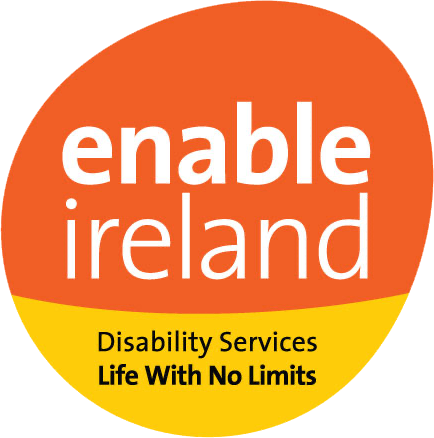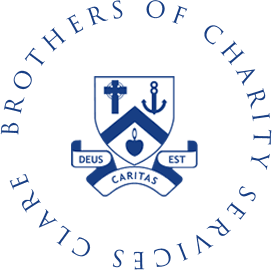Glossary of Terms
Analytical Language Processors (“Word babies”)
Analytical Language Processors (“Word babies”) learn language in a sequential order (in a particular order). They learn single words first, then they combine two words before moving on to short phrases and sentences.
Backward chaining
Backward chaining means breaking down a task into small steps, and teaching the steps in reverse order.
You complete all the steps except the last one. You get your child to practice the final step. Once your child can do the last step you complete all the steps except for the last two. For example, a parent/caregiver might complete steps 1-5 and the child would then complete step 6. When the child can complete step 6, they should then move onto completing steps 5 and 6.
The aim of backward chaining is for the parent/caregiver to be doing less and less and the child to be grow more independent with the task. The child should always complete the final step of the task.
CAMHS = Child and Adolescent Mental Health Services
CAMHS stands for Child and Adolescent Mental Health Services and is a service that provides assessment and treatment for young people and their families who are experiencing mental health difficulties.
While a broad range of services support the mental health of children and adolescents, the term ‘CAMHS’ is usually applied very specifically to services that provide specialist mental health treatment and care to young people up to 18 years of age through a multidisciplinary team.
To access a CAMHS service you need to be referred by your GP.
CDNM = Children’s Disability Network Manager
This person is responsible for managing the team and ensuring a high-quality service for children in their CDNT’s catchment area. The CDNM is employed by one of the lead agencies for the delivery of children’s disability services in CHO5.
CDNT = Children’s Disability Network Team
This is the team of health and social care professionals responsible for delivering children’s disability services to children with complex needs, arising from a disability, from birth to 18 years of age. Each CDNT covers a specific geographic area (catchment area).
CHO = Community Healthcare Organisation
There are nine CHOs across Ireland and each CHO delivers primary and community-based healthcare services. CHO5 covers Carlow, Kilkenny, South Tipperary, Waterford and Wexford.
Echolalia
Echolalia is when children repeat what another person has said.
Family Forum
These are meetings that are open to all families receiving services or waiting to receive services from their CDNT. They are an opportunity for families to come together to discuss general issues and ideas about children’s disability services in their area. They will take place at least twice a year.
Family-Centred Approach
This is the way we deliver services. It means we recognise parents and guardians as the experts on their child’s needs. Using a family-centred approach creates a partnership between parents and the team providing disability services. It also helps families to make decisions about services for their child.
Forward chaining
Forward chaining means breaking down a task into small steps and teaching the steps in order.
Your child will complete the first step and then the parent/caregiver completes the remaining steps. When the child is fully comfortable with step 1, they should then progress onto completing steps 1 and 2. When the child is confident with completing steps 1 and 2, they should go on to complete steps 1, 2 and 3, until eventually they complete all the steps of the task.
The aim of forward chaining is for the parent/caregiver to be doing less and less and the child to grow more independent with the task.
FRG = Family Representative Group
Two people are elected to represent their CDNT at each family forum. These two elected family representatives join the CHO5 Family Representative Group, which meets to share feedback and ideas with each other and with the PDS Governance Group for CHO5.
GDPR = General Data Protection Regulation
The legal framework that sets guidelines for the collection and processing of personal information from individuals who live in the European Union.
Gestalt Language Processors (“intonation babies”)
Gestalt Language Processors (“intonation babies”) are children who typically hear the melody of language and learn language in whole chunks. This often starts with Echolalia. Echolalia is when children repeat what another person has said. Echolalia is an essential part of language development for Gestalt Language Processors (GLP).
HSCPs = Health and Social Care Professionals
HSCPs provide interventions (support) in therapeutic, rehabilitative, and diagnostic services in different healthcare settings including children’s disability services. The HSCPs who work in CDNTs specialise in different areas of child development, and would include: occupational therapists; psychologists; physiotherapists; social workers; and speech and language therapists.
IFSP = Individual Family Support Plan
Your family and the Children's Disability Network Team (CDNT) you are linked to will agree on a plan for your child. This will be called an Individual Family Support Plan (IFSP). It will be based on your child’s and family's needs. The plan can be updated at any time to reflect changes needed.
The IFSP is made in partnership by the child (as appropriate to their age), their family and the CDNT. It focuses on four key areas: priorities, goals, supports, and strategies.
The plan does not need to be written during a formal meeting between the family and the whole team. It can be developed and revised by the family and one or two team members during a CDNT appointment, home visit, online meeting, or phone conversation.
Interdisciplinary team
In healthcare, an interdisciplinary team is made up of professionals from different disciplines who collaborate in their work. They complement each other's expertise and actively coordinate to share information, decision-making, and goal-setting. They have common policies and procedures and frequent opportunities for communication. They work with the family and child, all of whom are seen as part of the team. Together, they create a joint care and support plan.
Joint Attention
Joint Attention involves two people having a shared focus on the same stimulus (something that encourages an activity or a reaction). This may be an object, sound, event or person. Joint attention can be achieved when the adult directs their child’s attention to the object by using verbal cues i.e. sounds and words and/or using non-verbal cues such as eye-gazing, pointing, showing. Joint attention skills underpin speech, language and communication development.
Lead Agency
Lead agencies are responsible for delivering disability services to children with complex needs, arising from a disability, from birth to 18 years of age. They manage each of the CDNTs. A lead agency may be a HSE-funded non-statutory organisation or a CHO (Community Healthcare Organisation).
Multidisciplinary team
In healthcare, multidisciplinary teams are made up of different disciplines and each team member will independently treat the child focusing on the area they specialise in, for example, speech and language therapy or occupational therapy. The teams will have agreed policies and procedures for working together and for communication. They will work with the family and child to meet their identified needs using individual discipline care and support plans. When working together, they use a joint care and support plan.
NCSE = National Council for Special Education
The NCSE's service was designed to improve the co-ordination between the education and health sectors to provide supports for children with special educational needs. The NCSE's local service is delivered through a national network of Special Educational Needs Organisers (SENOs) who interact with parents and schools and liaise with the HSE in providing resources to support children with special educational needs.
Neurodiversity
Neurodiversity reflects the fact that people experience the world differently based on the ways their brains and environment interact. It is most commonly applied to autistic people but can also be applied to a range of learning difficulties, mental health challenges and other neurological differences.
Occupational therapist (OT)
An occupational therapist (OT) works directly with your child and with you as their parent or carer, to help your child develop the practical skills that will encourage their independence. They may also work with teachers or other specialists.
The OT will assess your child to see what they can do well, and what they find hard. They will then put together a treatment programme based on your child's needs. The treatment programme will focus on skills your child may need help with.
Programmes can include:
- parent education workshops
- individual sessions
- group sessions and sessions with other healthcare workers
- recommending special equipment if they need it - such as sensory equipment or equipment to help their movement
- advice about adaptations to your home or at school
Skills an occupational therapist may work on with your child
The skills an OT may work on with your child can be used at home, in school and in the community.
Examples of home skills may be:
- dressing
- feeding
- bathing
- going to the toilet
- playing
- kitchen skills
- School skills
Examples of skills needed for school may be:
- handwriting
- play
- physical education (PE)
- computers
- posture
Example of skills they may need in the community may be:
- hobbies
- sports
- independence
- shopping
- travel
PDS = Progressing Disability Services for Children and Young People
PDS is a national programme currently being rolled out with the aim of ensuring a unified approach across Ireland in the delivery of disability services. The project was established by the HSE and is being rolled out in partnership with voluntary organisations across Ireland, such as those in the CHO5 region, who provide the services in their area.
Physiotherapist (physio)
Physiotherapists are also sometimes called a 'physio'. They help children with disabilities to improve their movement and take part in everyday activities in their home, school and community.
How often your child sees the physiotherapist will depend on their needs. Some children will need physiotherapy for a few months. For others it can be helpful all through their lives.
The physiotherapist will discuss your concerns about your child’s development. They will help to develop long- and short-term goals you and your child wish to achieve.
The physiotherapist will work with you and your child to come up with activities to help achieve these goals. The physiotherapist may work with your child in individual or group sessions.
Primary Care
Primary Care is all of the health or social care services that you can find in your community, outside of hospital. It includes GPs, Public Health Nurses and a range of other services. They provide a single point of contact to the health system.
Psychologist
A psychologist may work with you and other members of the children's disability team to assess and understand your child’s unique strengths and abilities.
A psychologist can assess your child’s learning, emotional and behavioural difficulties.
The psychologist may assess your child’s progress in these areas:
- Learning, thinking and problem-solving.
- Play skills.
- Social skills.
- Emotional and behavioural development.
- Skills for independence.
A psychologist's assessment may involve:
- talking to you about your child’s strengths and needs
- talking to your child’s teachers
- observing your child at home, at school and at the centre
- playing with and talking to your child
- using formal tests of ability with your child. Your child may be asked to play with books, puzzles, toys and to look at pictures.
Based on this assessment, and by working with your child's teachers, they can also advise you on schools and education.
The psychologist may offer to:
- work with your family to encourage positive behaviour and social-emotional skills
- provide parent training
- support you when you are making a decision about starting your child in pre-school, primary school or secondary school
- support you to explore the impact of your child’s special needs on the family as a whole.
SENO = Special Education Needs Organiser
The National Council for Special Education's local service is delivered through a national network of Special Educational Needs Organisers (SENOs). They work with parents and schools and liaise with the HSE in providing resources to support children with special educational needs. SENOs are local points of contact for parents, guardians and schools.
Sensorimotor skills
Sensorimotor skills are how the body receives sensory messages (vision, hearing, smell, taste, touch,) and then gives a movement response (motor output).
Social worker
Social workers work with children and families to help them find solutions to challenges. They may see you and your family at home or in a children’s disability network team centre.
Social workers organise group sessions for parents of children with disabilities. This gives parents a chance to meet each other and share their experiences. Social workers will also see you on your own. This is so you are free to talk. Social workers may also work directly with children and young people, both individually and in groups.
A social worker may be able to help by giving you:
- space to think about the emotional impact of your child's diagnosis or extra needs
- opportunities to discuss how your child’s disability affects other family members
- training and support to develop the skills needed to parent a child with additional needs
- help to find resources in the community that can help your child and family
- help with applications for benefits and services
- opportunities to connect with other families of children with disabilities and support groups in the community
- support when you're facing other challenges - problems with health, relationships or money.
Social workers can also help you with referrals to other services. They work with the other members of the Children's Disability Network Team (CDNT).



